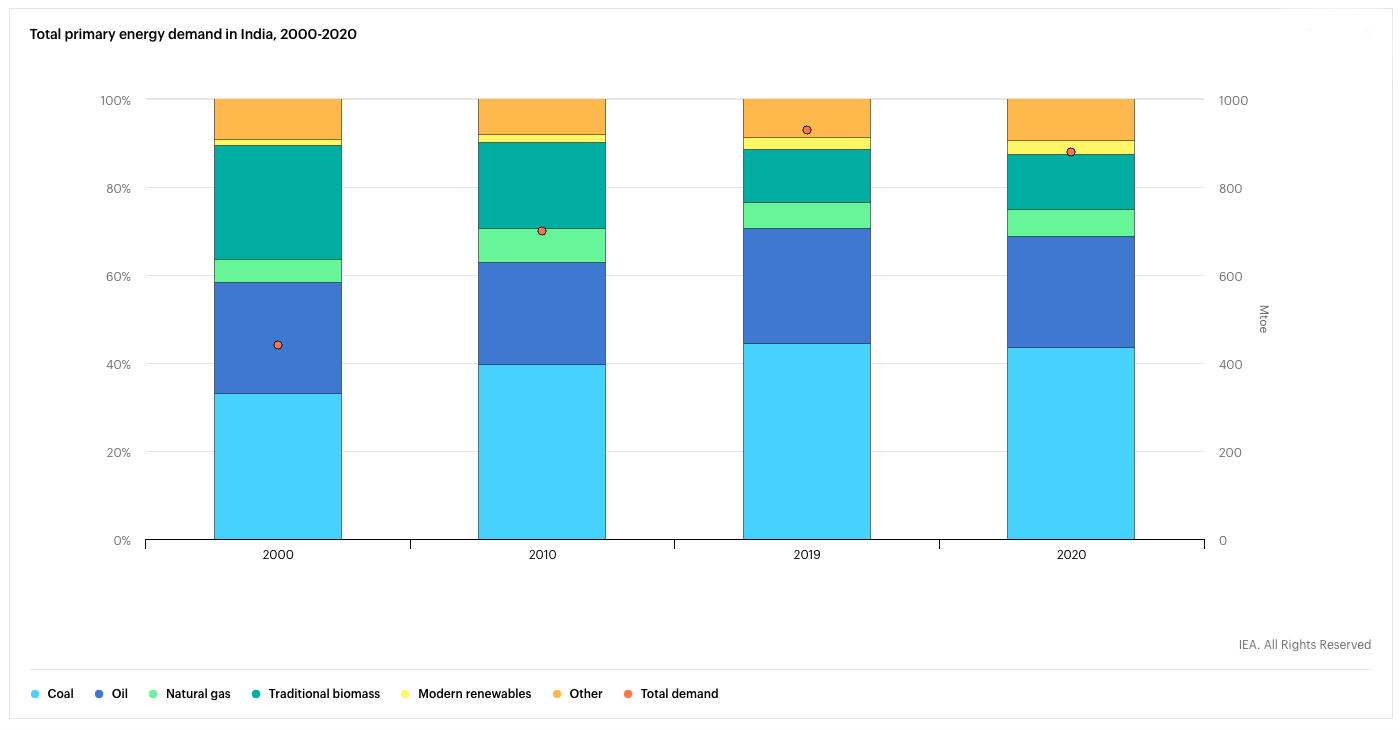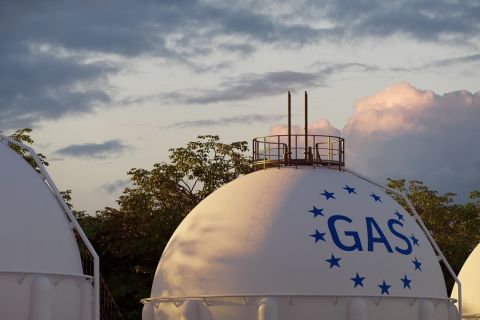India will be the main driver of rising demand for energy over the next two decades, accounting for 25% of global growth, and is set to overtake the European Union as the world's third-biggest energy consumer by 2030, the International Energy Agency (IEA) said.
India’s energy consumption is expected to nearly double as the nation’s gross domestic product expands to an estimated $8.6 trillion by 2040 under its current national policy scenario, the IEA said in its India Energy Outlook 2021 released on Feb. 9.
“This is underpinned by a rate of GDP growth that adds the equivalent of another Japan to the world economy by 2040,” said the IEA, the energy agency and policy adviser for members of the Organization for Economic Co-operation and Development.
India’s growing energy needs will make it more reliant on fossil fuel imports as its domestic oil and gas production has been stagnant for years despite government policies to promote petroleum exploration and production and renewable energy.
India’s oil demand is expected to rise to 8.7 million bbl/d in 2040 from about 5 million bbl/d in 2019, the IEA said, while its refining capacity will reach 6.4 million bbl/d by 2030 and 7.7 million bbl/d by 2040, from 5 million bbl/d.
It will be the world’s third-biggest energy consumer, behind China and the U.S., by 2030.
The world’s second-biggest net oil importer, behind China, currently imports about 76% of its crude oil needs. That reliance on overseas oil is expected to rise to 90% by 2030 and 92% by 2040, the IEA said.
Rising oil demand could double India’s oil import bill to about $181 billion by 2030 and nearly treble it to $255 billion by 2040 compared with 2019, the IEA said.
India, a signatory to the Paris climate accord, wants to boost power generation through renewables, mainly solar, and raise the share of natural gas in its energy mix to 15% by 2030 from 6.2% currently.

The share of solar energy in India’s power generation could equal coal-fired output by 2040, the IEA said. Coal currently dominates India’s electricity sector, accounting for over 70% of overall generation with only about 4% produced through solar.
The world’s fourth-largest LNG importer, which ships in about half of its natural gas needs by tanker currently, is spending billions of dollars to build infrastructure to boost use of the cleaner fuel.
LNG imports are expected to quadruple to 124 Bcm, or about 61% of overall gas demand by 2040, IEA said. That would be up from imports of 76 Bcm, or about 58% of gas consumption by 2030.
Recommended Reading
Wayangankar: Golden Era for US Natural Gas Storage – Version 2.0
2024-04-19 - While the current resurgence in gas storage is reminiscent of the 2000s —an era that saw ~400 Bcf of storage capacity additions — the market drivers providing the tailwinds today are drastically different from that cycle.
Biden Administration Criticized for Limits to Arctic Oil, Gas Drilling
2024-04-19 - The Bureau of Land Management is limiting new oil and gas leasing in the Arctic and also shut down a road proposal for industrial mining purposes.
SLB’s ChampionX Acquisition Key to Production Recovery Market
2024-04-19 - During a quarterly earnings call, SLB CEO Olivier Le Peuch highlighted the production recovery market as a key part of the company’s growth strategy.
PHX Minerals’ Borrowing Base Reaffirmed
2024-04-19 - PHX Minerals said the company’s credit facility was extended through Sept. 1, 2028.
Exclusive: The Politics, Realities and Benefits of Natural Gas
2024-04-19 - Replacing just 5% of coal-fired power plants with U.S. LNG — even at average methane and greenhouse-gas emissions intensity — could reduce energy sector emissions by 30% globally, says Chris Treanor, PAGE Coalition executive director.





